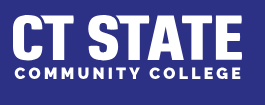This program can be used as a great additional certification for CNAs and Patient Care Technicians or it can as a stand-alone certification for someone wishing to work as a phlebotomist in hospitals, labs, doctors’ offices, blood donation centers and so on.

Interested in starting or advancing your career in healthcare? The Phlebotomy Technician program will give you the specialized knowledge and skills necessary to draw blood safely and confidently from both adults and children.
This program can be used as a great additional certification for CNAs and Patient Care Technicians or it can as a stand-alone certification for someone wishing to work as a phlebotomist in hospitals, labs, doctors’ offices, blood donation centers and so on.
You will learn the technical and procedural aspects of phlebotomy including the collection of blood specimens and venipuncture using a combination of theory and hands-on instruction. You’ll also learn fundamental concepts including procedures, safety, infection control, legal issues in healthcare, introductory-level human anatomy and physiology and more!
Upon completion, you will be eligible to sit for a National Certificate Exam.
In This Course You'll Learn To:
perform various blood collection techniques and understand their importance
integrate knowledge and skills acquired to function as a competent phlebotomist
understand the professional roles of a phlebotomist in relation to the healthcare delivery system
understand, demonstrate, and continuously utilize the principles of medical asepsis and standard precautions as well as other safety precautions
demonstrate an understanding of appropriate and effective application of legal and ethical standards of practice
promote effective oral communication skills to patients, their families and other healthcare professionals
demonstrate and utilize appropriate medical terminology and abbreviations as related to the clinical laboratory
Admission Requirements:
Must be at least 18 years of age
GED or high school diploma
Completed health form, signed by your physician (if clinical is included)
Proof of COVID-19 vaccination, including booster (if clinical is included)
Drug testing (If clinical is included)
A criminal background check may be required. Students who have a record of felonies or misdemeanors may be denied access to clinical training sites. (If clinical is included) Note: Convicted felons may have difficulty finding employment in the healthcare industry.
Get to Know Us
Connecticut State Community College, also known as CT State, was launched on July 1, 2023 as the result of a consolidation of the state’s 12 community colleges. CT State has 12 campuses along with satellite locations in every corner of Connecticut, serving the residents of 169 towns, as well as neighbors from Massachusetts, New York and Rhode Island.
As the largest community college in New England, CT State is an ambitious revisioning of higher education. Our goal as a public higher education institution is to provide a high-quality, affordable and accessible post-secondary education that enables students to achieve their life and career goals.
Small, focused classrooms; dedicated faculty and staff; and support services built into the cost of tuition are a few of the ways we offer students the academic, social and emotional support they need to succeed.
Tutoring centers across our campuses help students succeed academically while student activities and programs provide enriching and fun ways for students to get involved in campus life.
Our Mission
Connecticut State Community College provides access to academically rigorous and innovative education and training focused on student success. The college supports excellence in teaching and learning, makes data-informed decisions, promotes equity, and advances positive change for the students, communities and industries it serves.
Our Vision
Connecticut State Community College is recognized for exceptional student success, educational leadership and transformative collaboration with business and industry, government, educational and key stakeholders while advancing diverse opportunities for Connecticut’s citizens and communities.
© 2025 coursetakers.com All Rights Reserved. Terms and Conditions of use | Privacy Policy